Undergraduate Scholars Present Research
On May 3, fourteen HHEI undergraduate research assistants presented their work at a poster session for alumni, faculty, and fellow students. The 2021-22 cohort of students worked alongside faculty mentors and graduate students throughout the year, gaining hands-on experience and insights into the research process.
| Student Name | Poster Title & Summary | Poster PDF Files |
|---|---|---|
|
Ross Abram |
"Measuring Health and Racial Health Disparities over the Life-Cycle" How should we measure health by race and ethnicity? Self-reported health measures depend upon social and cultural context. Officially recorded health measures, like diagnoses, depend on access to healthcare and its quality. I evaluate how different measures of health predict key economic outcomes by race and ethnicity. I find that self-reported health status and frailty play different roles by race in predicting key outcomes. |
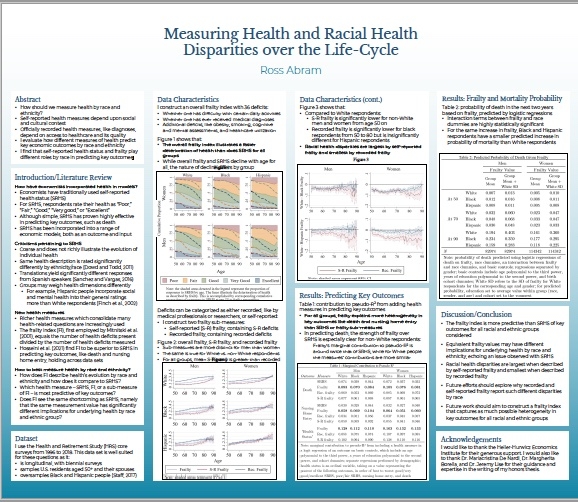
|
|
Ben Cartford |
"Measuring Private Business Value" Private businesses account for half of U.S. business net income but little is known about their assets, both tangible and intangible. My project looked specifically at cafes and caterers to to provide insights with hedonic price models by breaking down the value of goods in terms of their components. |
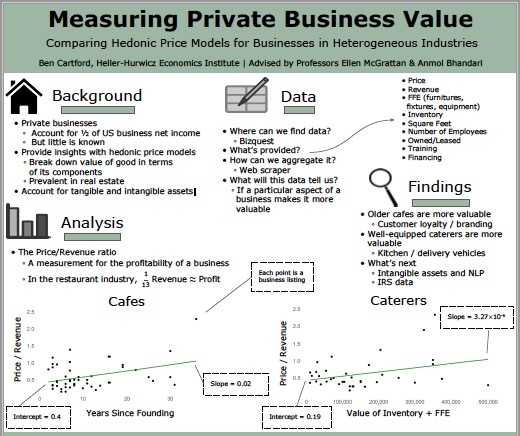
|
| Joseph DiSpirito |
"An Alpha-Maxmin Model of Casino Gambling and Choice Under Ambiguity" How can we model ostensibly irrational behavior such as casino gambling? In this project, I evaluated the current literature surrounding cumulative prospect theory agents' behavior in casinos, and expanded it to the maxmin model to account for agent's attitude towards ambiguity. |
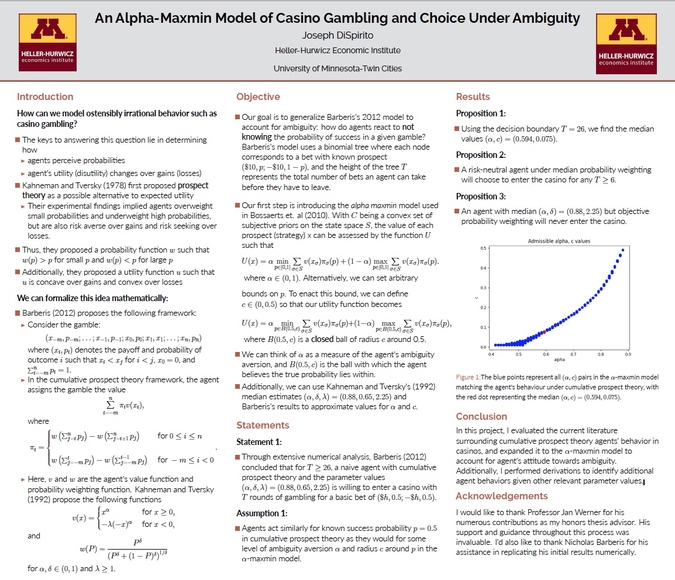
|
|
Mikolaj Dueholm |
"Central Bank Independence and Inflation" High inflation is generally a bad outcome for numerous reasons: savings disappear; gas and other goods become more expensive; loans for homes are more expensive. High inflation can also be self-perpetuating, leading to hyperinflation and recessions. Governments use different tools to combat inflation: monetary policy, fiscal policy, and central bank policy. Central banks are responsible for money supply and regulating commercial banks, and Central Bank Independence (CBI) represents freedom from government intervention. The question I seek to answer: Is CBI key to avoiding inflation? |
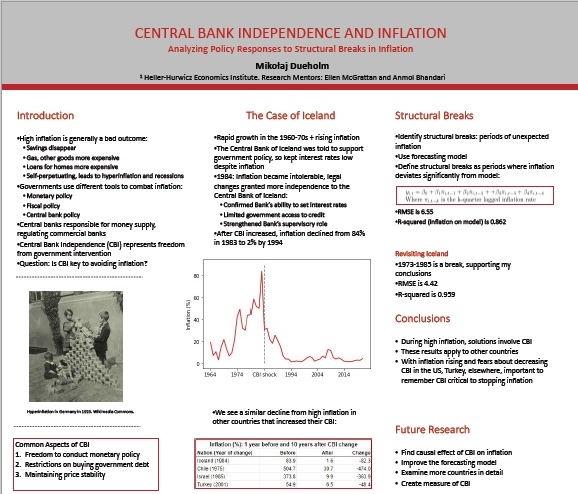
|
| Alexander Dukart |
"The Median Voter Theorem under Abstention" Under traditional assumptions, the Median Voter Theorem (MVT) holds across many political dimensions and for any distribution of voters. Many papers were written in the mid-20th century that dealt with new assumptions where the MVT result did not hold but none were done in the modern computing age. Taking advantage of modern computer programming we can examine the MVT for any distribution of voters in any number of dimensions. |
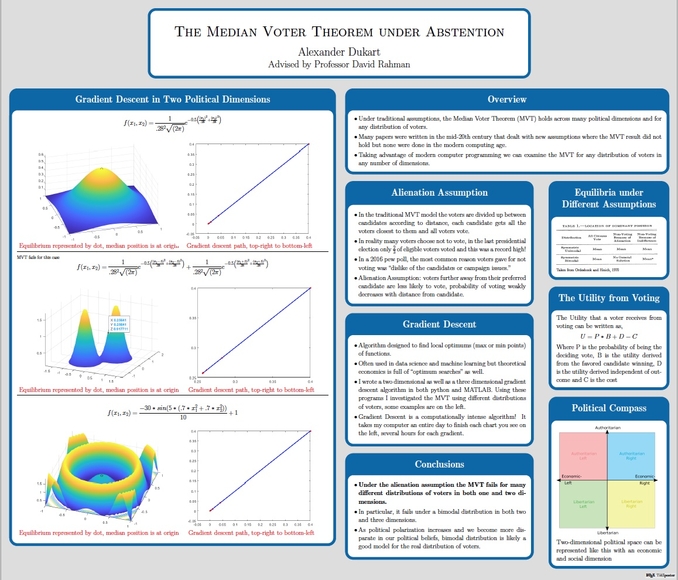
|
| Stuart Fronk |
"Is Apple a Monopoly?" In 2020 Epic Games, the maker of online video game Fortnite, filed suit against Apple challenging Apple's restrictions on in-app purchasing methods outside of the one offered by the App Store. I bring economic analysis to the issue, building a theoretical model to examine Epic's claims. |
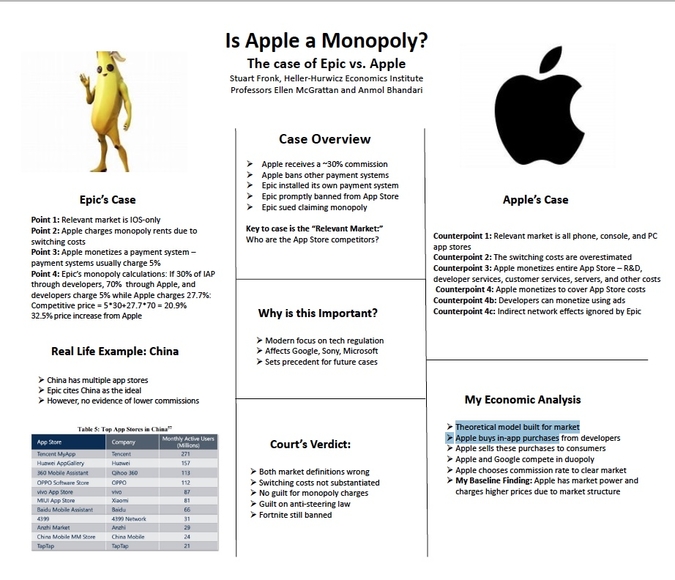
|
| Kevin Jacobson |
"The Importance of Cognitive Health in Predicting Mortality" To what extent does individual health an dits components predict mortality? The key to answering this question is determining how to best measure health. An increasingly popular measure is the frailty index. While frailty is typically defined by physiological deficits, cognitive conditions are important in forecasting life expentancy and assessing quality of life. This project aims to construct different forms of the frailty index and assess the performance of each index. |
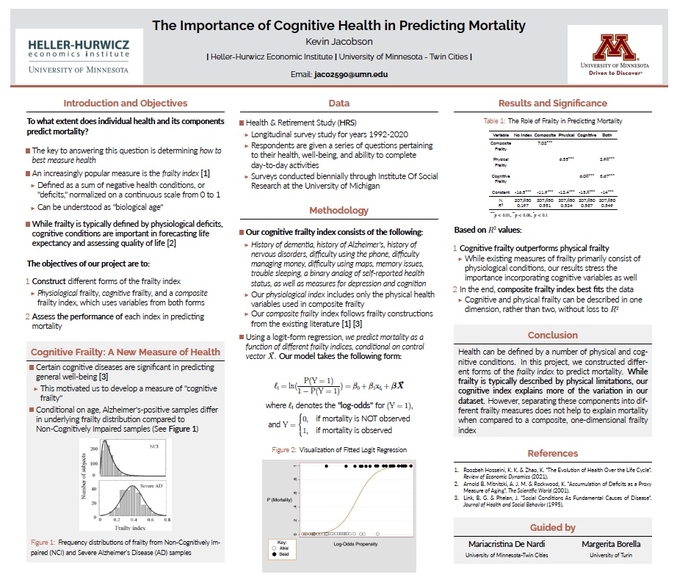
|
| Benjamin Krueger |
"Modeling Latent Health Types Using K-Means Clustering" This project was undertaken with the goal of finding how predetermined people’s health outcomes are past the age of 50. I attempt here to assign health types to individuals based on health data between the ages of 50 and 60. These types are then tested for their association with a number of health outcomes and behaviors. These clusters should also explain future outcomes such as mortality. From here, we can use health types as a control when measuring the impact medical spending has on health outcomes. |
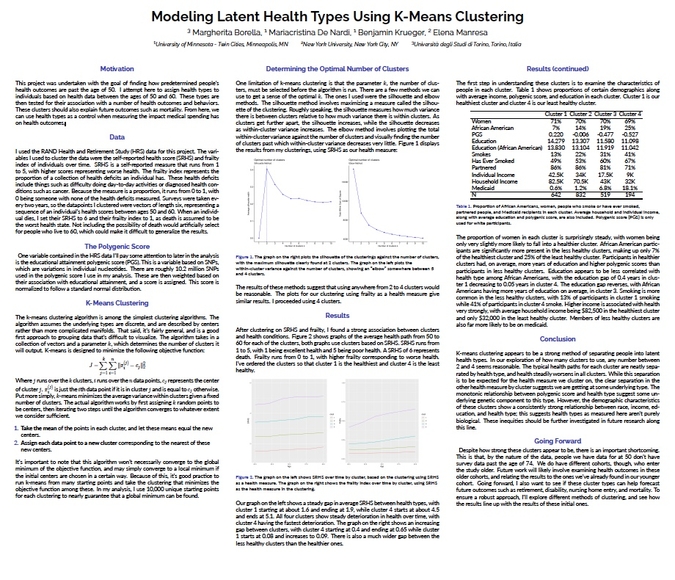
|
| Xiang Liu & Yash Singh |
"Trade Flows and Economic Density" We use multiple models to understand the effect of economic density on trade flows. We start by simulating trade flows between four identical villages with linear and multiplicative trade cost structures. Then, we add a large village in the middle of the four villages to model the effects of economic density on trade flows. In the model, trade flows are jointly determined by the distance and the amount of economic activity between two villages. We further use real Commodity Flow Survey data to test our assumptions. |
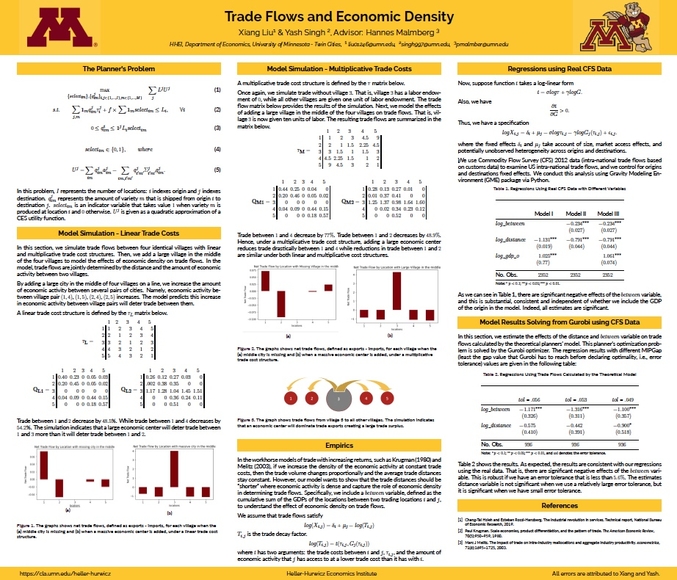
|
| Yixuan Liu |
"The Impacts of the 1993 Family and Medical Leave Act on Children’s Educational Attainment and Behavior Problems" This project explores whether FMLA, signed into law by President Clinton in 1993, increased children’s years of education or high school graduation completion after children of likely affected mothers turned 18 years old. I also examined whether children of likely affected mothers had less behavior problems than children of likely ineligible mothers. |
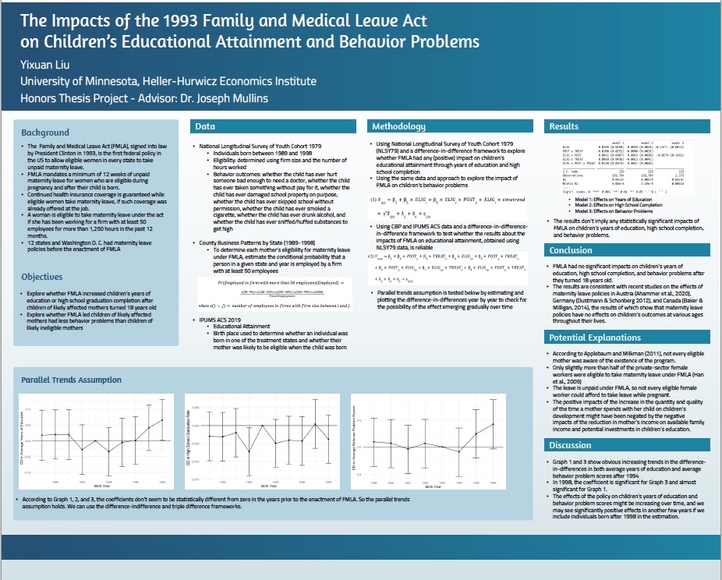
|
| Huda Osman & Jacqueline Zhang |
"Intergenerational Determinants of Inequality in Early Childhood Investment" Formative years of life have long-term impacts on future outcomes. Can root causes of inequality be, in part, traced back to differences in parental investment during early childhood? How do these differences manifest in the child's skills or behaviors? What factors determine levels of investment? We use data from two longitudinal surveys to examine these questions. |
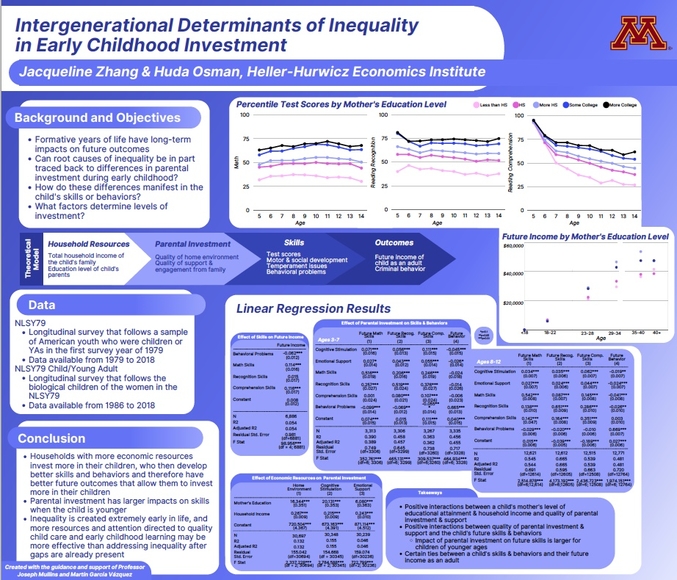
|
| Ruixi Yu |
"Occupational Segregation and the Gender Wage Gap" Gender egalitarianism would imply that women would have access to job mobility in the labor market. Currently, there are still marked differences in the occupational distribution of men and women in the labor market. Researchers have ascertained that gender inequality and gender devaluation will be strongest in a highly gender-segregated labor market. Occupational segregation is correlated with a significantly increased tendency to devalue women’s work roles and has contributed to the wage gap between men and women. The goal of this study is to calculate the index of occupational segregation from 1994 to 2020 and to determine how occupational segregation contributes to the wage gap. |
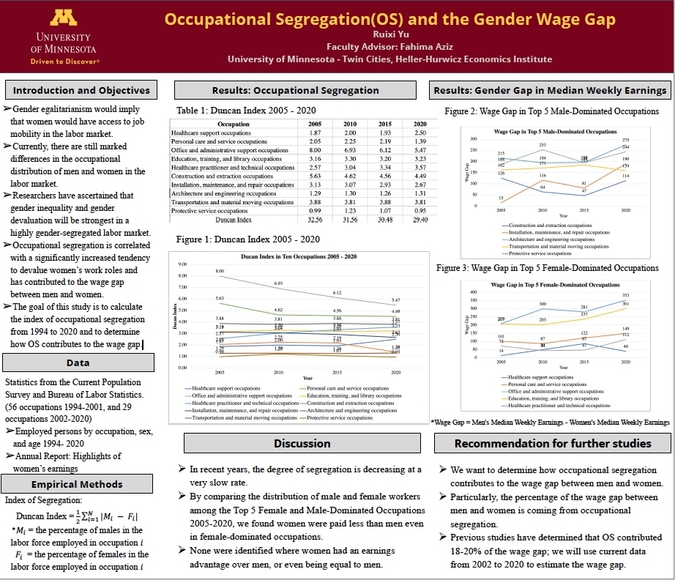
|



